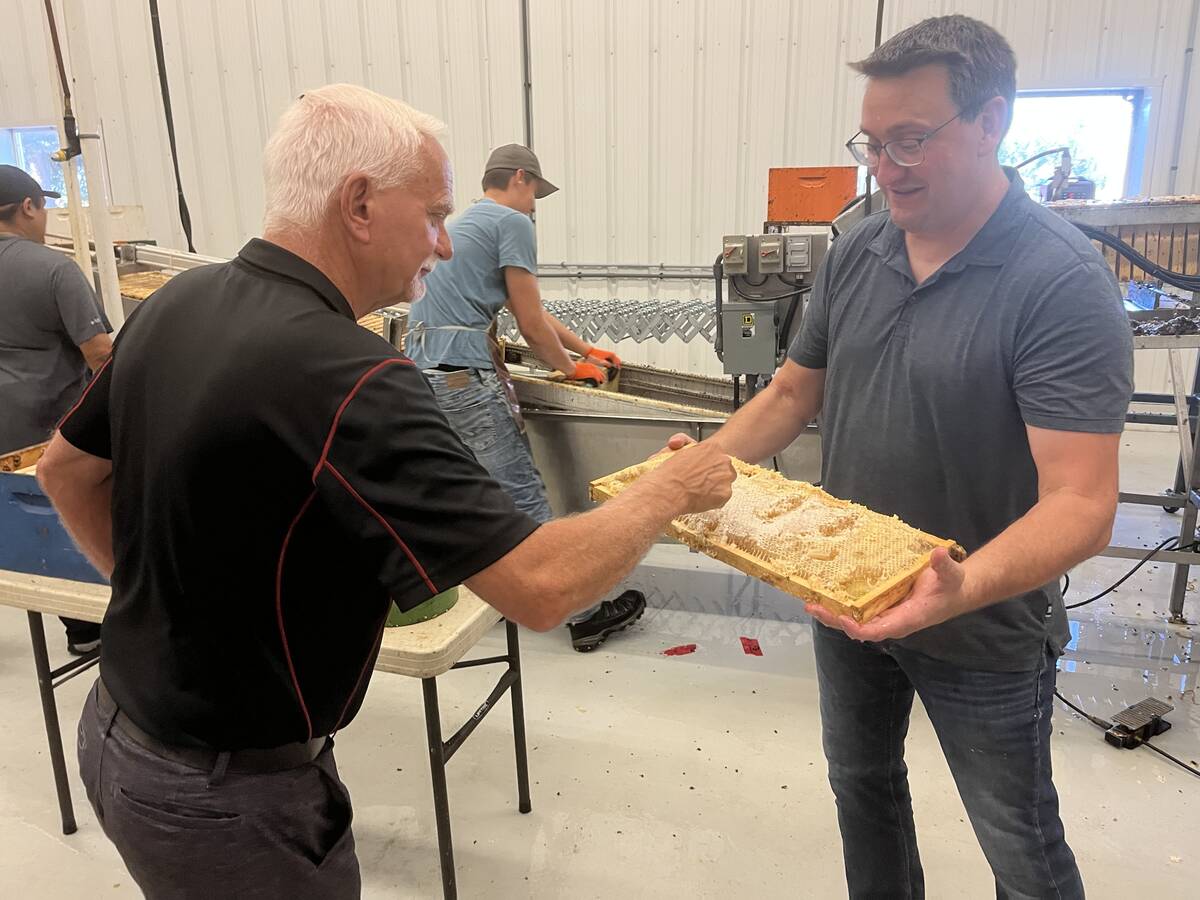Q: This spring you wrote several columns on important points to consider when negotiating a surface rights lease with an oil company. However, I suggest that in view of recent court and Surface Rights Board of Arbitration rulings in Saskatchewan, the lease agreement is not the be-all and end-all. The particular cases I’m referring to are Best Pacific vs. Wheatland Farming, a court of appeal decision, and Meota Resources vs. Backman, a board decision. Those decisions show that sometimes the terms of a surface lease can be rendered invalid.
Read Also

Alberta honey business ‘thrives’ despite bumpy beginnings
Thrive Honey showcases its honey production in market where Alberta produces 40 per cent of all honey produced in the country
A: Both these decisions involved the question of whether an operator of an oil and/or gas well requires separate consent and must pay separate compensation to run a flow line at a later date across a well site for which the operator already has a surface lease.
In the Best Pacific case, the company sought to connect two well sites to a battery site elsewhere on the land. The company had a surface lease for both well sites. When it couldn’t reach a compensation agreement with the landowner, the matter went to the Surface Rights Board. That board made two compensation orders. One was to compensate for the flow line outside the well sites. The other was to compensate for that portion of the flow line within the well site and covered by the surface rights lease.
The Meota Resources case involved a similar issue. Meota had acquired rights to a well from Merit Energy after a sale by a receiver. Meota sought to close a compressor station and take the gas to another station. As in the Best Pacific case, this meant running additional flow lines. One would have run through the well site on the Backman land. At issue was whether the board could grant an easement across the well site and order appropriate compensation.
In Meota Resources vs. Backman the lease provided for “the right, liberty and privilege … to lay down construct, maintain, inspect, remove, replace, reconstruct and repair pipes, pipelines and all structures and equipment necessary or incidental thereto … for use in connection with the operations of the lessee.”
The lease was for the “purpose of a well site for the drilling of a well for petroleum and/or natural gas … and the taking of production therefrom.”
Can an operator put additional flow lines in the well site at a later date to connect other wells or to send petroleum or gas through the site without additional permission or compensation?
Looking at Saskatchewan’s Surface Rights Acquisition and Compensation Act, that province’s court of appeal in Best Pacific concluded yes.
“There is no need for an operator, wishing to lay down a flow line or service line, to acquire any additional rights to the surface of that land, because the operator will already have acquired all the rights necessary to that end, namely the right to enter upon and use the surface of that land for the conduct of its operations. And since no further rights in that land need be acquired, no further compensation need be paid.”
The Surface Rights Board in the Meota Resources case was bound by the decision of the court of appeal. It appears that because of these decisions, a provision in a contract may not be effective even if it specifically provides that a flow line installed at a later date is not included in the surface lease.
Based on my research, the result would be the same in Alberta.
















